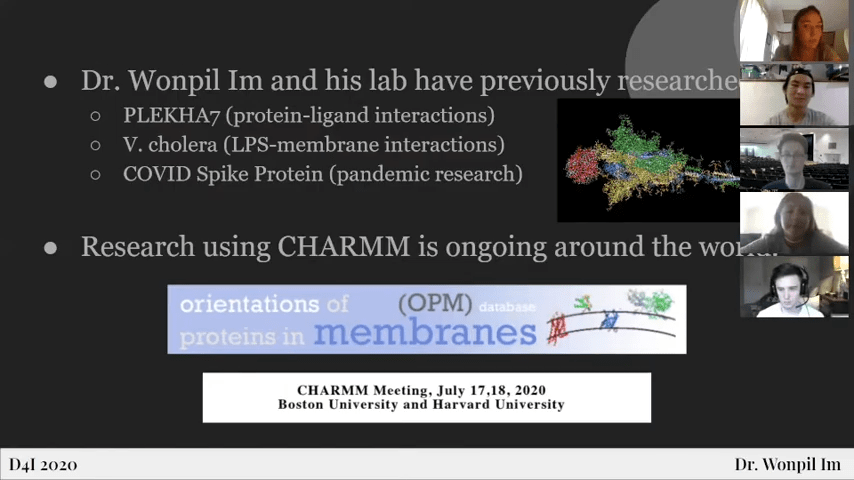Computer-Aided Drug and Discovery

Students on Summer Project Team:
Grant Armstrong '21, Cognitive Science
Carly Carpino '22, Bioengineering
Stephen Gee '23, IBE
Tim Hartnagel '21, Biochemistry
Nathan Kern 'G, Computer Science & Engineering
Lingyang Kong '22, Biopharmaceutical Engineering
Danielle Picarello '22, IDEAS
Amanda Rubin '22, Bioengineering
Isslam Yehia '23, Computer Science & Engineering
Faculty Mentor(s): Wonpil Im, Professor of Bioengineering and Presidential Endowed Chair in Health, Science & Engineering
Project Video: Click here to view
Project description:
Despite advances in biotechnology, the number of new drugs approved per billion USD spent on drug research and development (R&D) has halved roughly every 9 years, indicating declining R&D efficiency. Therefore, the ability to conduct efficient computational drug discovery has emerged as a vital component to improve both the efficiency and economics of drug discovery. Drug compounds bind to proteins, regulating their functions to acquire beneficial effects to treat diseases. Therefore, better understanding of protein-ligand interactions at the molecular level, and accurate quantification or prediction of their binding affinity, are at the core of computer-aided drug discovery. This project studies protein-ligand interactions computationally, using three families of impactful therapeutic targets for cancers and AIDS: estrogen receptor; HIV-1 protease; and three types of kinases (Ser, Thr, Tyr). Out of a large number of data sets, we chose a few test cases and compare calculated binding free energy results with the corresponding experiment data. In particular, we provided practical hands-on research experiences in computer-aided drug discovery. The lectures and tools in CHARMM-GUI (http://www.charmm-gui.org/lecture) have been used for student learning and research.


